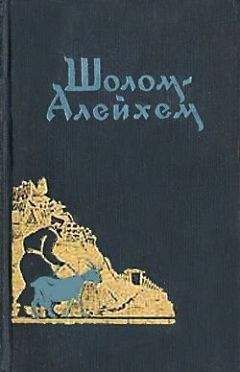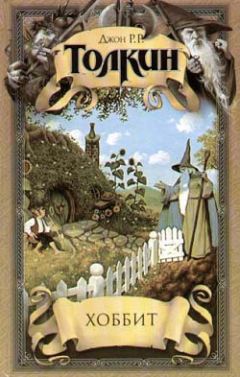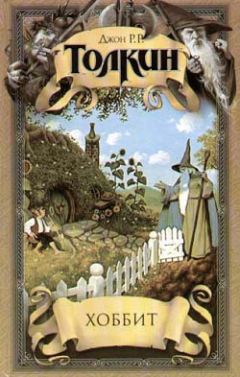Джон Толкиен - Английский язык с Дж. Р. Р. Толкиеном. Хоббит
It had a perfectly round door like a porthole, painted green, with a shiny yellow brass knob in the exact middle. The door opened on to a tube-shaped hall like a tunnel: a very comfortable tunnel without smoke, with panelled walls, and floors tiled and carpeted, provided with polished chairs, and lots and lots of pegs for hats and coats — the hobbit was fond of visitors.
The tunnel wound on and on (туннель продолжал виться и виться; on — зд. указывает на продолжение действия), going fairly but not quite straight (ведя почти что, но не совсем прямо) into the side of the hill (в сторону холма) — The Hill (Холма), as all the people for many miles round called it (как все люди на много миль вокруг называли его) — and many little round doors (и много маленьких круглых дверей) opened out of it (открывались наружу /из него/), first on one side (сперва по одной стороне) and then on another (и затем по другой). No going upstairs for the hobbit (никаких хождений вверх /по лестнице/ для хоббита): bedrooms (спальные комнаты), bathrooms (ванные комнаты), cellars (погреба), pantries (кладовые для провизии) (lots of these (множество кладовых: «таковых»)), wardrobes (гардеробные) (he had whole rooms devoted to clothes (у него были целые комнаты, предназначенные для одежды; to devote — посвящать, отдавать целиком)), kitchens (кухни), dining-rooms (столовые), all were on the same floor (все были расположены на одном и том же этаже), and indeed on the same passage (и уж конечно, в одном и том же проходе). The best rooms were all on the left-hand side (все самые лучшие комнаты были с левой стороны) (going in (со стороны входа)), for these were the only ones (так как это были единственные комнаты) to have windows (в которых были окна), deep-set round windows (глубоко посаженные круглые окошки) looking over his garden (входящие на его сад) and meadows beyond (и луга за ним), sloping down to the river (спускающиеся к реке).
cellar [ˈselǝ] wardrobe [ˈwɔ: drǝʋb] meadow [ˈmedǝʋ]
The tunnel wound on and on, going fairly but not quite straight into the side of the hill — The Hill, as all the people for many miles round called it — and many little round doors opened out of it, first on one side and then on another. No going upstairs for the hobbit: bedrooms, bathrooms, cellars, pantries (lots of these), wardrobes (he had whole rooms devoted to clothes), kitchens, dining-rooms, all were on the same floor, and indeed on the same passage. The best rooms were all on the left-hand side (going in), for these were the only ones to have windows, deep-set round windows looking over his garden and meadows beyond, sloping down to the river.
This hobbit was a very well-to-do hobbit (этот самый хоббит был очень обеспеченным хоббитом), and his name was Baggins (и фамилия его была Бэггинс). The Bagginses had lived in the neighbourhood of The Hill (семья Бэггинсов жила в окрестностях Холма; neighbourhood—соседство, близость) for time out of mind (с незапамятных времен; mind — ум, разум), and people considered them very respectable (и люди считали их очень почтенными), not only because most of them were rich (и не только потому, что большинство из них были богаты), but also because they never had any adventures (но также и потому, что они никогда не участвовали ни в каких приключениях) or did anything unexpected (или /никогда не/ делали ничего неожиданного): you could tell what a Baggins would say (можно было сказать, что ответит один из Бэггинсов) on any question (на любой вопрос) without the bother of asking him (не утруждаясь даже спросить его; bother — беспокойство, хлопоты). This is a story (эта история о том) of how a Baggins had an adventure (как Бэггинс попал в приключения), found himself (и обнаружил внезапно, что он; to find oneself doing smth. — сделать что-либо неожиданно для себя самого) doing and saying things altogether unexpected (делает и говорит совершенно неожиданные вещи). He may have lost the neighbours’ respect (он, может быть, и потерял уважение соседей), but he gained (но он приобрел) — well, you will see (ну, вы сами увидите) whether he gained anything in the end (приобрел ли он что-нибудь в конце концов).
well-to-do [ˌweltǝˈdu: ] neighbourhood [ˈneɪbǝhʋd] adventure [ǝdˈventʃǝ]
This hobbit was a very well-to-do hobbit, and his name was Baggins. The Bagginses had lived in the neighbourhood of The Hill for time out of mind, and people considered them very respectable, not only because most of them were rich, but also because they never had any adventures or did anything unexpected: you could tell what a Baggins would say on any question without the bother of asking him. This is a story of how a Baggins had an adventure, found himself doing and saying things altogether unexpected. He may have lost the neighbours’ respect, but he gained — well, you will see whether he gained anything in the end.
The mother of our particular hobbit (мать нашего этого хоббита; particular — особый, специфический) — what is a hobbit (а что такое хоббит)? I suppose hobbits need some description nowadays (я полагаю, что хоббитам необходимо /дать/ небольшое описание в наши дни), since they have become rare (так как они стали редкостью) and shy of the Big People (и стесняются Высокого Народа; big — большой, крупный), as they call us (как они называют нас). They are (они /есть/) (or were (или были)) a little people (приземистым народом; little — маленький, небольшой, короткий), about half our height (где-то вполовину нашего роста), and smaller than the bearded Dwarves (и меньше, чем бородатые Гномы). Hobbits have no beards (у хоббитов нет бороды). There is little or no magic about them (в них мало, а то и совсем нет никакой магии), except the ordinary everyday sort (за исключением обычной, повседневной разновидности /волшебства/; sort — вид, род, сорт) which helps them to disappear quietly and quickly (которое помогает им исчезать тихо и быстро) when large stupid folk like you and me (когда большие глупые люди, вроде тебя и меня) come blundering along (идут ощупью; blunder — грубая ошибка; промах; to blunder (along) — двигаться ощупью; спотыкаться), making a noise like elephants (и делают столько же шума, сколько слоны) which they can hear a mile off (и который они могут слышать за целую милю).
description [dɪsˈkrɪpʃ (ǝ) n] height [haɪt] bearded [ˈbɪǝdɪd] dwarf [dwɔ: f]
The mother of our particular hobbit — what is a hobbit? I suppose hobbits need some description nowadays, since they have become rare and shy of the Big People, as they call us. They are (or were) a little people, about half our height, and smaller than the bearded Dwarves. Hobbits have no beards. There is little or no magic about them, except the ordinary everyday sort which helps them to disappear quietly and quickly when large stupid folk like you and me come blundering along, making a noise like elephants which they can hear a mile off.
They are inclined to be fat in the stomach (они имеют склонность быть толстенькими в брюшке); they dress in bright colours (они одеваются в одежду ярких цветов) (chiefly green and yellow (большей частью зеленого и желтого)); wear no shoes (не носят обувь), because their feet (потому что на их ступнях) grow natural leathery soles (растут от природы кожистые подошвы) and thick warm brown hair (и густой теплый бурый мех: «каштановые волосы»; thick — толстый, жирный) like the stuff on their heads (как и мех: «волосы» на их головах; stuff — материал, вещество) (which is curly (который /еще и/ кудрявый); have long clever brown fingers (у них: «/они/ имеют» длинные ловкие смуглые пальцы; clever — умный, талантливый, умелый), good-natured faces (добродушные лица), and laugh deep fruity laughs (и смеются /они/ глубоким сочным смехом; fruity — фруктовый) (especially after dinner (особенно после обеда), which they have twice a day (который у них два раза в день) when they can get it (когда они могут его добыть)). Now you know enough (теперь вы знаете достаточно) to go on with (чтобы продолжать).
stomach [ˈstʌmǝk] leathery [ˈleð (ǝ) rɪ] good-natured [ɡʋdˈneɪtʃǝd]
They are inclined to be fat in the stomach; they dress in bright colours (chiefly green and yellow); wear no shoes, because their feet grow natural leathery soles and thick warm brown hair like the stuff on their heads (which is curly); have long clever brown fingers, good-natured faces, and laugh deep fruity laughs (especially after dinner, which they have twice a day when they can get it). Now you know enough to go on with.
As I was saying (как я говорил), the mother of this hobbit (мать этого самого хоббита) — of Bilbo Baggins, that is (Бильбо Бэггинса, то есть) — was the fabulous Belladonna Took (была легендарная Белладонна Тук), one of the three remarkable daughters of the Old Took (одна из трех замечательных дочерей Старого Тука), head of the hobbits (главы хоббитов) who lived across The Water (которые жили по ту сторону Воды), the small river (маленькой речки) that ran at the foot of The Hill (которая текла у подножия Холма; to run (ran, run) — бежать, гнать; foot (feet) — нога, ступня, основание). It was often said (часто поговаривали) (in other families (в других семьях)) that long ago (что давным-давно) one of the Took ancestors (один из предков семейства Туков) must have taken a fairy wife (должно быть, взял в жены волшебницу). That was, of course, absurd (это было, конечно же, нелепо), but certainly there was still (но, несомненно, было все-таки) something not entirely hobbit-like about them (что-то не совсем хоббитовское: «похожее на хоббитов» в них), — and once in a while (и, время от времени) members of the Took-clan would go and have adventures (члены клана Туков отправлялись и искали: «имели» приключения). They discreetly disappeared (они незаметно: «обдуманно, осмотрительно» исчезали), and the family hushed it up (и /их/ семья заминала этот /факт/; to hush — водворять тишину, успокаивать); but the fact remained (но факт оставался фактом) that the Tooks were not as respectable as the Bagginses (что семейство Туков не было таким же почтенным, как семейство Бэггинсов), though they were undoubtedly richer (хотя они были, вне всякого сомнения, богаче).




